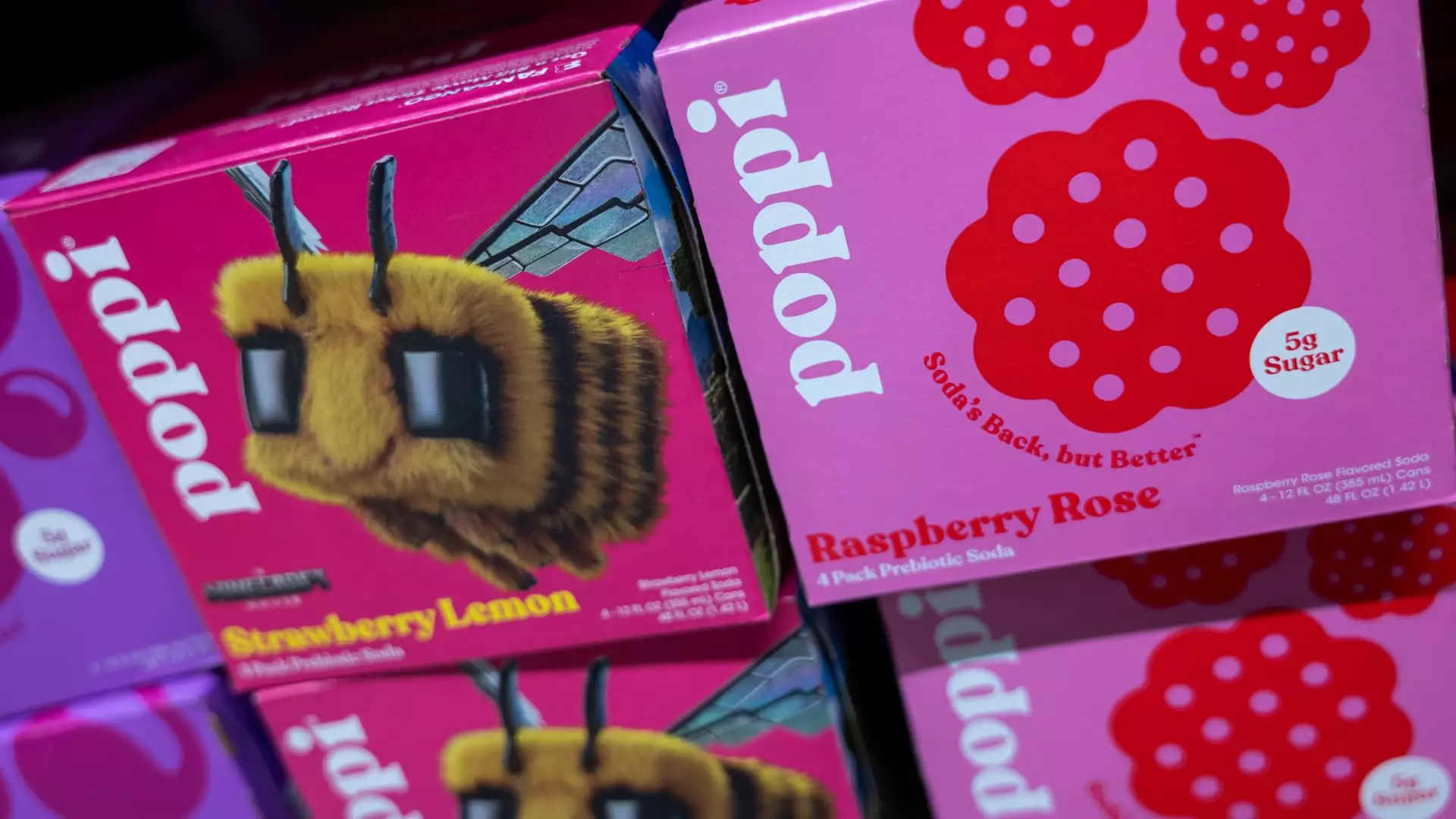PepsiCo’s recent acquisition of Poppi for a staggering $1.95 billion marks a pivotal moment in the beverage industry, illustrating a significant shift towards health-driven consumer preferences. As traditional soda consumption continues its steady decline, notably due to growing health consciousness, the prebiotic soda category—led by innovative brands like Poppi and Olipop—has surged, claiming a distinct market niche. This $2 billion investment showcases PepsiCo’s strategic pivot, recognizing that adapting to evolving consumer tastes is not just beneficial but essential for survival in a fiercely competitive landscape.
The New Health Craze
The rise of prebiotic sodas is indicative of a broader trend where consumers are increasingly scrutinizing what they consume. Poppi’s unique formulation—highlighting apple cider vinegar, prebiotics, and a minimal sugar content—appeals to health-conscious individuals seeking alternatives to traditional sugary sodas. With annual sales reportedly crossing the $100 million mark, it’s no wonder PepsiCo recognizes the potential return on investment. They seem to understand that the health-focused demographics are not just a passing trend but represent a fundamental recalibration of what beverage options consumers are increasingly gravitating toward.
Market Competition and Corporate Strategy
Pepsi’s acquisition comes in the wake of major competition—Coca-Cola has also dipped its toes into the prebiotic market with Simply Pop. This development reflects an urgent need for legacy brands to innovate or risk becoming obsolete. The beverage giants are no longer just fighting for shelf space; they are battling to ensure relevance in an age where consumers prioritize health, wellness, and quality over brand loyalty. Pepsi’s aborted plans for its Soulboost line could symbolize a failure to innovate internally, leading them to smartly pivot to acquire an already successful brand rather than attempt to create one from scratch.
Controversy and Brand Integrity
However, with rapid growth comes scrutiny. Poppi has faced criticism for its health claims, recently culminating in a class action lawsuit alleging deceptive marketing practices. This has sparked dialogues about the authenticity and transparency of brands in the health space. Can the prebiotic movement maintain its credibility amidst legal challenges? PepsiCo’s association with a brand embroiled in controversy could yield complexities further down the line. The acquisition isn’t merely a financial transaction; it opens a dialogue about accountability and consumer trust in health-oriented products.
The Financial Breakdown
PepsiCo’s financial engineering of this deal is noteworthy. The $1.95 billion headline figure is substantially cushioned by $300 million in anticipated tax benefits, lowering the net price to $1.65 billion. This strategic maneuver reflects a calculated risk, as the beverage conglomerate positions itself to harness potential cash flow from an expanding market. The additional payments tied to Poppi’s performance post-acquisition indicate confidence in the brand’s trajectory, which could incentivize operational excellence and innovation as it integrates into Pepsi’s expansive portfolio.
PepsiCo’s move is not merely a reactive step in a declining market; it is a bold, calculated leap toward embracing the future of beverages. As they position themselves to thrive in the health-conscious arena, only time will tell if this premium investment yields the lucrative returns anticipated, or if it becomes a cautionary tale within the ever-evolving food and beverage landscape.


Leave a Reply